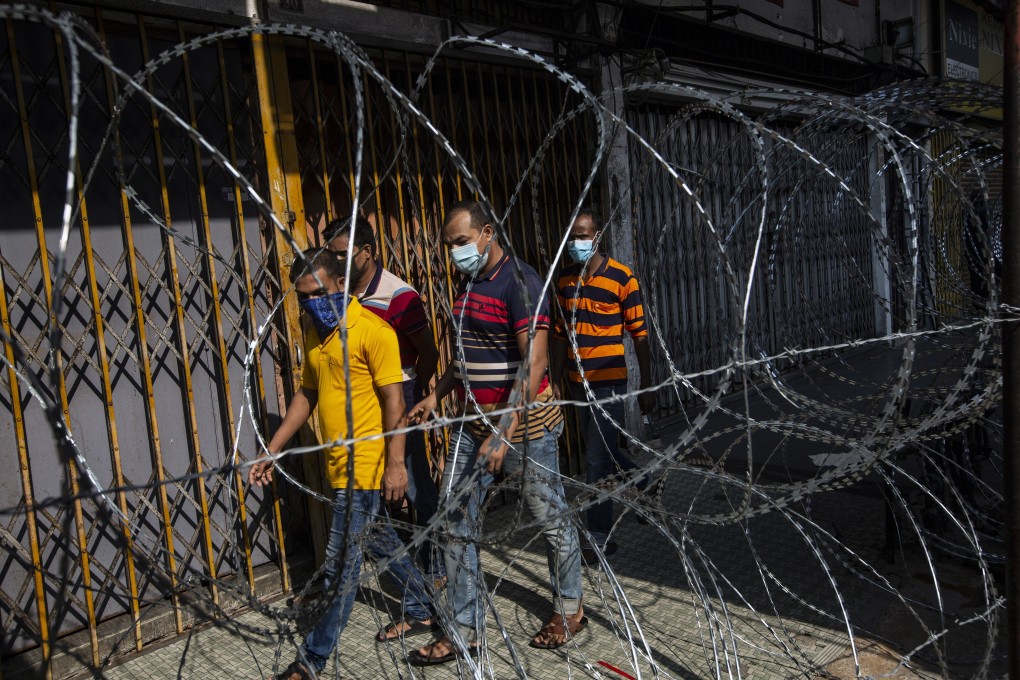As Malaysia’s coronavirus lockdown lifts, migrant workers return to dangers of life in ‘3D’
- Watchdogs say the workers – often in jobs labelled ‘dangerous, dirty and difficult’ are more vulnerable to the spread of the disease
- Many of them are worried about outbreaks or being placed in detention centres, where there was a surge in cases following immigration raids in May

Frequently employed in jobs labelled “3D” – dangerous, dirty and difficult – migrant workers are more vulnerable to the spread of the disease due to cramped living conditions and poor workplace practices, watchdogs say.
Construction sites are of particular concern as the push for the government to resume large-scale infrastructure projects intensifies. In May, after several sites were isolated as Covid-19 clusters, the nation’s top health official said employers had to take a more hands-on role in protecting employees.
“Our efforts to fight Covid-19 will be in vain unless there is compliance of the standard operating procedures [SOPs] at the workplace and accommodation. Efforts to resolve the living conditions of foreign workers need to have the cooperation of all parties and [need to be] done holistically and comprehensively,” said health ministry director general Noor Hisham Abdullah.
Although many construction workers have undergone Covid-19 tests – covered by the nation’s social security organisation as long as employers are contributors – many workers still fear outbreaks, while others complain of being confined to their quarters.